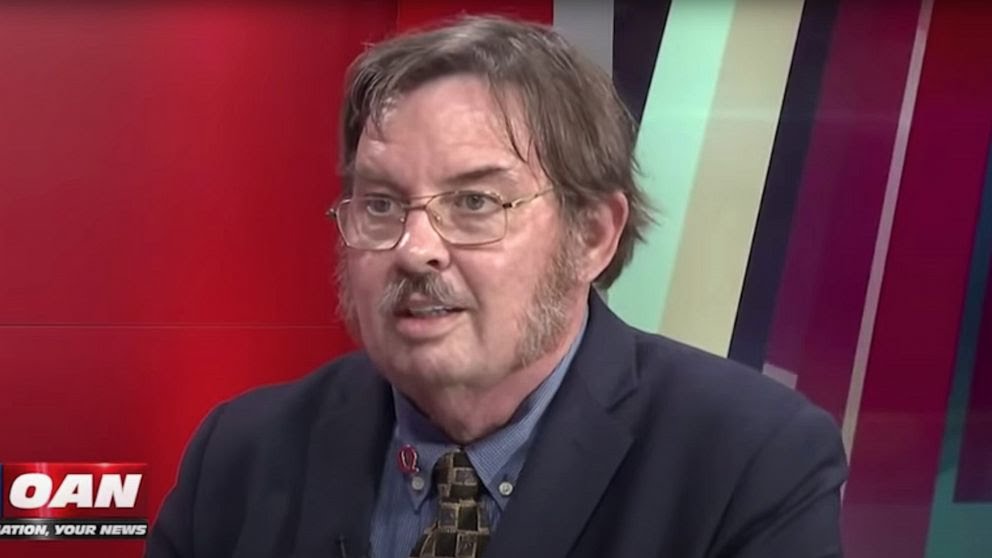Breaking the Administrative State Key to a Successful Second Term
Lost in the shuffle of this week’s breaking news is something Attorney General Bill Barr said last week in a speech calling out the dangers of the bureaucracy, even within his own department.
Eric Tucker of the Associated Press outlined the “issue” with Barr’s speech at Hillsdale College: “Rejecting the notion that prosecutors should have final say in cases that they bring, Barr described them instead as part of the ‘permanent bureaucracy’ and suggested they need to be supervised, and even reined in, by politically appointed leaders accountable to the president and Congress.”
Yes. That is precisely the problem. Yet what we identify as the problem was in fact the goal for the Progressives who established our present-day bureaucracy.
Read the writings of Woodrow Wilson to understand the Progressive ideal. It is this: to have a massive bureaucracy, an administrative state, filled with unelected, educated elites who would help accelerate “progress” in America.
Wilson was very clear about what he envisioned. Scholar Ronald Pestritto writes that Wilson advocated “a new kind of national administration—largely removed from popular consent and charged with making the policy requisite for national progress—that could be staffed by university men like himself, as opposed to the political operators of low character who populated the back rooms of Congress.”
This is the essence of the administrative state: an unelected elite bureaucracy drawn (supposedly) from the “smartest of the smart” institutions that will make all the actual policy while being largely removed from “popular consent,” i.e. electoral accountability. In other words, it’s a way to get you and your deplorable opinions out of the way.
What Barr hit upon is not a glitch of the Progressives’ administrative state, it is the central feature. It was always intended to work this way.
The problem with the administrative state approach is that eventually a large and powerful bureaucracy, with little real oversight from elected officials, and no electoral accountability by virtue of which the American people can remove them, thinks that it is in charge. It thinks that it decides all important questions that it can wield its power however it damn well pleases. And isn’t that the case in practice even though they never legitimately overturned the Constitution’s assertion of the sovereignty of the people?
This is the great tension that has exploded to the surface in the last four years when one Donald J. Trump showed up in D.C. in 2017 saying, essentially, “I’m the duly-elected president of the United States, by the means laid out in the Constitution. I make the decisions about foreign and domestic policy inside of my administration and how the laws will be carried out.”
In response, the administrative state actors said: “We don’t think so. We think we’re the ones who should make those decisions.”
All of this madness, from Russian collusion fairytales to Ukrainian quid pro quo hoaxes, revolves around one question: Who decides? In a constitutional republic, all power flows from the people to their duly elected leaders to entrust them with deciding, whereas in an administrative state, it is the unelected bureaucrats who decide. This tension was bound to have to play out in dramatic fashion.
So Trump, the great red pill for American society, has finally brought to the surface what has been simmering below it for over a century: you cannot have an administrative state governing philosophy at the same time you pretend to be devoted to the Constitution as it was written. They are oil and water—conflicting approaches to government and its role in peoples’ lives.
No republic can thrive, or even merely exist, when substantial numbers of powerful people believe that bureaucrats in various bloated government departments and agencies have the moral right to make decisions on the behalf of the American people who never voted for them. What kind of a republic is that?
It’s a joke.
This should be a priority in Trump’s second term: If he truly wants to drain the swamp, he needs to break apart the administrative state, the foundation of the swamp, by 10 percent a year—at a minimum. It is the only way to reaffirm and reestablish the idea that the people of this republic are sovereign. Break the state, drain the swamp, restore the Republic.
Link to Source
Lost in the shuffle of this week’s breaking news is something Attorney General Bill Barr said last week in a speech calling out the dangers of the bureaucracy, even within his own department.
Eric Tucker of the Associated Press outlined the “issue” with Barr’s speech at Hillsdale College: “Rejecting the notion that prosecutors should have final say in cases that they bring, Barr described them instead as part of the ‘permanent bureaucracy’ and suggested they need to be supervised, and even reined in, by politically appointed leaders accountable to the president and Congress.”
Yes. That is precisely the problem. Yet what we identify as the problem was in fact the goal for the Progressives who established our present-day bureaucracy.
Read the writings of Woodrow Wilson to understand the Progressive ideal. It is this: to have a massive bureaucracy, an administrative state, filled with unelected, educated elites who would help accelerate “progress” in America.
Wilson was very clear about what he envisioned. Scholar Ronald Pestritto writes that Wilson advocated “a new kind of national administration—largely removed from popular consent and charged with making the policy requisite for national progress—that could be staffed by university men like himself, as opposed to the political operators of low character who populated the back rooms of Congress.”
This is the essence of the administrative state: an unelected elite bureaucracy drawn (supposedly) from the “smartest of the smart” institutions that will make all the actual policy while being largely removed from “popular consent,” i.e. electoral accountability. In other words, it’s a way to get you and your deplorable opinions out of the way.
What Barr hit upon is not a glitch of the Progressives’ administrative state, it is the central feature. It was always intended to work this way.
The problem with the administrative state approach is that eventually a large and powerful bureaucracy, with little real oversight from elected officials, and no electoral accountability by virtue of which the American people can remove them, thinks that it is in charge. It thinks that it decides all important questions that it can wield its power however it damn well pleases. And isn’t that the case in practice even though they never legitimately overturned the Constitution’s assertion of the sovereignty of the people?
This is the great tension that has exploded to the surface in the last four years when one Donald J. Trump showed up in D.C. in 2017 saying, essentially, “I’m the duly-elected president of the United States, by the means laid out in the Constitution. I make the decisions about foreign and domestic policy inside of my administration and how the laws will be carried out.”
In response, the administrative state actors said: “We don’t think so. We think we’re the ones who should make those decisions.”
All of this madness, from Russian collusion fairytales to Ukrainian quid pro quo hoaxes, revolves around one question: Who decides? In a constitutional republic, all power flows from the people to their duly elected leaders to entrust them with deciding, whereas in an administrative state, it is the unelected bureaucrats who decide. This tension was bound to have to play out in dramatic fashion.
So Trump, the great red pill for American society, has finally brought to the surface what has been simmering below it for over a century: you cannot have an administrative state governing philosophy at the same time you pretend to be devoted to the Constitution as it was written. They are oil and water—conflicting approaches to government and its role in peoples’ lives.
No republic can thrive, or even merely exist, when substantial numbers of powerful people believe that bureaucrats in various bloated government departments and agencies have the moral right to make decisions on the behalf of the American people who never voted for them. What kind of a republic is that?
It’s a joke.
This should be a priority in Trump’s second term: If he truly wants to drain the swamp, he needs to break apart the administrative state, the foundation of the swamp, by 10 percent a year—at a minimum. It is the only way to reaffirm and reestablish the idea that the people of this republic are sovereign. Break the state, drain the swamp, restore the Republic.
Link to Source








